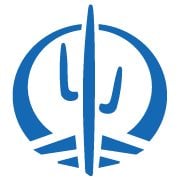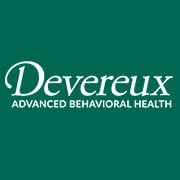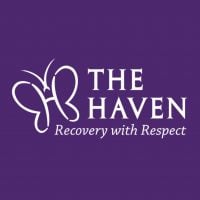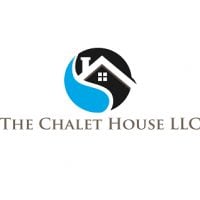PBSI Behavioral Health Clinic
Drug Rehab Center in Tucson, Arizona
- Mental Health
The PBSI Behavioral Health Clinic in Tucson, AZ offers a variety of mental health services tailored to individual needs, including aftercare support, outpatient treatment, therapy, and long-term residential programs.
About PBSI Behavioral Health Clinic in Arizona
PBSI Behavioral Health Clinic is an addiction treatment facility in Tucson, Arizona offering a full spectrum of services to help people struggling with mental health, alcoholism, and drug addiction. The clinic provides focuses on both long-term recovery and short-term stabilization and is committed to helping people overcome their addiction and lead a healthy and productive life. PBSI Behavioral Health Clinic provides several types of treatment including Aftercare Support, Outpatient Levels of Care, and other support services. They are dedicated to providing quality treatment using evidence-based practices, with a focus on personalization and customization based on the individual's needs. PBSI Behavioral Health Clinic is accredited by the Joint Commission and is licensed by the Arizona Department of Health Services. They accept most major private medical insurance plans, including Medicare and Medicaid.
At PBSI Behavioral Health Clinic, they provide comprehensive care for individuals struggling with addiction, including mental health services, individual and group therapy, and medication management. Patients receive personalized care plans tailored to their individual needs that help them manage their addiction, gain insight into their illness, and develop healthier coping strategies to prevent relapse. Treatment also includes relapse prevention, life skills training, and family support. Additionally, their Aftercare Support services provide a smooth transition into the community and help patients maintain their sobriety even after finishing their treatment.
Genders
Ages
Modality
Additional
Conditions and Issues Treated
Levels of Care Offered
This center offers a variety of custom treatment tailored to individual recovery. Currently available are Aftercare Support, Outpatient, with additional therapies available as listed below.
Outpatient treatment consists of counseling and therapy sessions. The outpatient treatment process begins with the addict’s initial detox period, lasting about ten days. Outpatient treatment is used for those who are at moderate risk for “slipping back” into the addiction. It is also used for those who are not currently experiencing any side effects from withdrawal, can handle social pressure, have a stable living environment, and have a good support system.
Aftercare support is often overlooked in the treatment of drug and alcohol addiction. However, it’s an essential part and should be considered when planning a course of rehab.
Aftercare is a term that’s used to refer to any sort of continuing care offered for a drug addict who has voluntarily entered a rehabilitation program. This type of care can be provided in several settings, including outpatient therapy sessions after the addict has completed an inpatient program. There are also 12-step support groups, such as Alcoholics Anonymous, which can provide additional help for addicts trying to stay sober.
Aftercare is vital because addicts often face many challenges as they attempt to recover from drug addiction or alcoholism. Because of the powerful nature of these addictions, those who struggle with a drug or alcohol problem will likely have to face the craving for their substance of choice for the rest of their lives. Recovering can be a lonely and frustrating endeavor, especially without the support of others who are going through similar situations.
Therapies & Programs
Individual Therapy is a crucial component of addiction recovery. Therapists work with patients to identify the root of their addiction and figure out how to better handle the issues that led to them using drugs. Individual Therapy is one on one sessions where people meet with their therapist. Individual therapy provides a safe space for people to open up and discuss personal and sensitive topics which they may not feel comfortable discussing in a group setting.
In this type of therapy, therapists can develop specific solutions for each patient, which helps speed up their recovery process. In addiction recovery, therapy is a crucial part. It allows patients to go deep into their core issues and discover how those problems can be better handled now. Therapy can be performed in individual sessions as well as group settings. In individual therapy for addiction, the patient meets with the therapist one-on-one to focus on the underlying issues of addiction and come up with solutions to prevent future abuse.
Addiction can take a heavy toll on relationships, damage the trust and intimacy that was once there. Couples therapy at PBSI Behavioral Health Clinic helps to rebuild the trust and intimacy that has been damaged. An intimate relationship with a drug addict is not healthy for children or anyone in the family. Therapist help to rebalance family roles and create a healthier environment after rehab in Tucson, AZ.
Family therapy is a crucial part of drug treatment and getting sober. It is one of the most effective ways to help addicts stay on the path to long-term sobriety. One of the most important parts of family therapy is the relapse prevention plan. During treatment, therapists and doctors will often sit down with the addict and their family to develop a plan if the addict ever feels like they want to use again. This plan should involve steps the addict and family can take together to prevent them from relapsing in the future.
An addict’s family can play a vital part in helping them to avoid relapse because they can spot the warning signs and help them get back on track before it becomes too much of a problem. Family therapy is one of the most effective ways to help addicts stay on the path to long-term sobriety.
Group Therapy is employed by drug treatment centers like PBSI Behavioral Health Clinic to provide the recovering addict with a platform to talk about their feelings and experiences. It also provides for an opportunity to learn from other addicts who have successfully overcome their addiction. It is recommended that all group members be recovering addicts for this type of therapy to work.
Payment Options Accepted
For specific insurance or payment methods please contact us.
Additional Details
Specifics, location, and helpful extra information.
Tucson, Arizona 85705 Phone Number(520) 887-0985 Meta DetailsUpdated November 25, 2023
Staff Verified
PBSI Behavioral Health Clinic Patient Reviews
There are no reviews yet. Be the first one to write one.
Tucson, Arizona Addiction Information
Arizona has some of the highest rates of prescription drug abuse in the United States. Methamphetamines, heroin and morphine are among the most commonly abused substances. Prescription pain relievers were prescribed to 348 million people in 2012, enough to medicate every adult in Arizona for 2 full weeks. The number of people with substance use disorders in Arizona has remained relatively constant over the past few years.
In Tucson, Arizona, drug addiction is a serious issue. In fact, according to recent statistics, there are over 15,000 people in the city who are addicted to drugs. This accounts for about 5% of the population. Tucson's most commonly abused drugs include heroin, methamphetamine, and cocaine. In Tucson, Arizona, the types of treatment available include inpatient rehabilitation, outpatient rehabilitation, and 12-step programs.
Treatment in Nearby Cities
- Marana, AZ (17.4 mi.)
- Flagstaff, AZ (204.7 mi.)
- Maricopa, AZ (81.8 mi.)
- Ganado, AZ (250.4 mi.)
- Show Low, AZ (146.3 mi.)
Centers near PBSI Behavioral Health Clinic
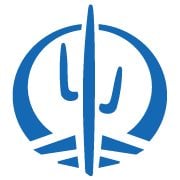
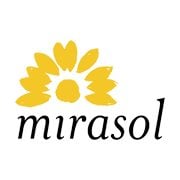

The facility name, logo and brand are the property and registered trademarks of PBSI Behavioral Health Clinic, and are being used for identification and informational purposes only. Use of these names, logos and brands shall not imply endorsement. RehabNow.org is not affiliated with or sponsored by PBSI Behavioral Health Clinic.

